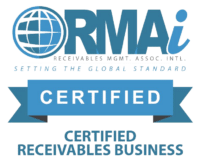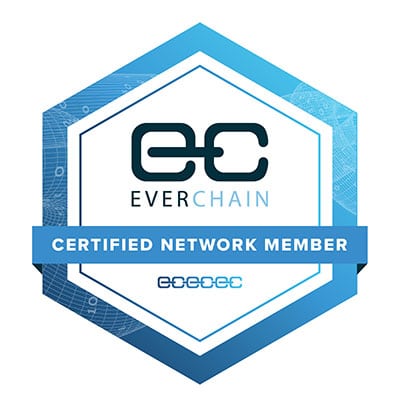Credit unions are known for their deep community ties and commitment to their members’ financial well-being. However, like any financial institution, they face the challenge of managing charged-off debt—accounts no longer likely to be paid.
Rather than letting these accounts continue to weigh on their organizations financial health, selling this debt can be a strategic move, offering immediate and long-term benefits. While debt sales may seem challenging, especially given credit unions’ unique member-focused structure, the process can be transformative when approached with the right strategy and partners.
In this blog, we’ll explore why credit unions should consider selling charged-off debt, how it can help them maintain strong relationships with their members, and the steps to finding the right debt-buying partner. Whether your credit union is managing a few delinquent accounts or considering new ways to improve cash flow, understanding the benefits and best practices of debt sales can lead to better financial health and continued member trust.
Boost Cash Flow with Debt Sales
One of the most immediate benefits of selling charged-off debt is the instant influx of cash. Rather than waiting for uncertain payments from delinquent accounts, credit unions can secure a predictable revenue stream by selling these accounts to a debt buyer. This reliable cash flow is essential to maintain financial stability, especially for credit unions that rely on consistent resources to serve their members.
Why does this matter? Predictable revenue means credit unions can reinvest strategically in key areas, such as improving member services or offering competitive interest rates. Another key benefit is how it positively impacts the credit union’s financial statements.
By removing these non-performing assets, credit unions present a stronger, cleaner balance sheet to their members and stakeholders. This transparency strengthens the institution’s financial health and fosters trust among members who rely on their credit union for stability.
Support Member Trust
Selling charged-off debt helps credit unions protect their overall membership. When delinquent accounts are sold, credit unions can focus on offering valuable services to members in good standing. Instead of using time and resources to manage hard-to-collect debts, they can direct those efforts toward improving financial products and enhancing member experiences.
This approach also ensures that unpaid debts don’t negatively impact members’ ability to meet their financial commitments. By selling off these accounts, credit unions show that they’re taking steps to maintain fairness and stability for all members, not allowing a few delinquent accounts to disrupt operations.
Key benefits include:
- ensuring financial stability for the entire credit union;
- protecting members from the impact of unpaid debts;
- and allowing staff to focus on providing high-quality services.
Credit unions show they are committed to serving the broader community by addressing delinquent accounts through debt sales. This strategy keeps operations smooth and ensures all members benefit from a financially solid and focused institution.
Use a Balanced Recovery Approach
Credit union debt collection requires a recovery strategy that combines multiple approaches to manage delinquent accounts effectively. Using a mix of methods, credit unions can maximize their chances of recovering funds while keeping internal resources focused on the most valuable tasks. Methods include:
- Collect on early-stage accounts using internal teams to recover payments quickly.
- Offer flexible payment plans to help members settle their debts over time.
- Pursue litigation for accounts with significant balances or higher recovery potential.
- Sell older or hard-to-collect accounts to free up staff for more manageable debts.
- Review account data regularly to prioritize each case’s most effective recovery method.
By maintaining a balanced recovery approach, credit unions can improve efficiency, boost recovery rates, and continue to focus on delivering quality service to their active members. This ensures that no single recovery method overwhelms the institution and keeps the credit union’s resources aligned with its broader goals.
Consider Contract Terms Carefully
When selling charged-off debt, the contract terms can significantly affect the sale price and how members are treated. Clear, well-structured terms ensure that debt buyers follow practices that align with your credit union’s values. At the same time, overly restrictive terms can reduce the value of the debt, lowering the price buyers are willing to pay.
To get the best results, balance maximizing recovery and protecting member relationships. Thoughtful contract terms increase the value of credit union debt collection from debt sales while ensuring members are treated fairly and respectfully.
Choose the Right Credit Union Collection Agency
Credit union debt sales can boost cash flow, improve financial stability, and free up resources. By selling charged-off debt, credit unions turn non-performing assets into revenue that can support growth and enhance member services. A balanced approach to recovery — combining collections, payment plans, and litigation — ensures efficient management of delinquent accounts without overloading internal teams.
Credit union collection agencies that understand credit union debt sales goals will streamline the process, maximize returns, and help maintain a strong reputation. With thoughtful planning and a reliable agency, debt sales become valuable for financial health and operational focus.
About Landmark Strategy Group
Landmark Strategy Group, LLC is a nationally licensed receivables investment firm that purchases non-performing and charged-off accounts from creditors. Landmark specializes in passively purchasing consumer accounts including credit card, auto deficiency, fintech / online lending, revolving or installment loans, credit union, retail finance and Chapter 13 bankruptcy loan portfolios. Landmark’s efficient and compliant acquisitions process includes a quick valuation, streamlined deal execution, and exceptional post-sale management. Landmark Strategy Group is a Receivables Management Association International (RMAI) Certified Receivables Business (CRB).
Selling non-performing portfolios removes much of the onus of debt collection compliance for creditors and provides businesses with more predictable and immediate cash flow; it also reduces or eliminates the need for allocating internal resources to collection efforts, enabling creditors to focus on their core business.





